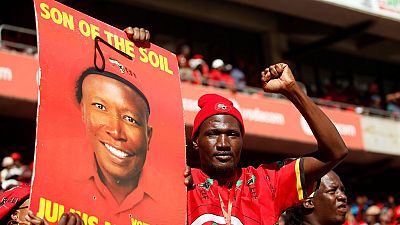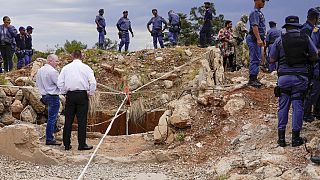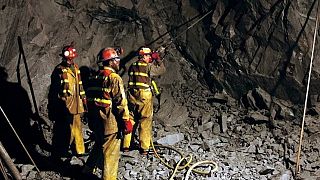South Africa
South Africa’s Economic Freedom Fighters, EFF, have thanked voters for reposing confidence in them by giving them more seats in the next National Assembly.
The EFF gained ground in the May 8 elections, its second presidential and parliamentary election. The party grossed 10.7% of the vote, up from 6.3% five years ago.
In a statement issued today (Monday 13, 2019), the party extended: “deep and sincere gratitude to the people of South Africa who came out in the numbers to vote on 08 May 2019.
“We pay special attention to all who voted the EFF, increasing our electoral support by 70% across the country.
“We do not take it for granted that in each of the 09 provinces more people believe in the EFF than they did in 2016 and 2014. It is a sign that our revolution is on course and soon it shall be realized and accomplished.”
EFF Statement of Gratitude on Electoral Growth. pic.twitter.com/knw4Ue92Sf
— Economic Freedom Fighters (@EFFSouthAfrica) May 13, 2019
The ruling ANC despite winning the polls, slipped to holding 230 parliament seats, while the main opposition Democratic Alliance now holds 84, the EFF’s 44 means they maintain their spot as the second main opposition party.
They gained nineteen more seats in the legislature with over a million and half votes. Incidentally, the ANC lost the exact number of seats despite winning the polls.
In South Africa, the president and parliament are not elected directly. The number of votes won by each party determines how many representatives are sent to the national 400-seat legislature. The president of the country is the leader of the party that gets the most votes.
South Africa president vows to fight ‘bad, deviant party members
President Cyril Ramaphosa on Sunday vowed to purge his party of “bad and deviant tendencies” as he prepares to appoint a new cabinet following a victory in national elections.
The 57% share of the vote was the worst-ever election showing for the African National Congress, which has ruled since the harsh apartheid system of racial discrimination ended 25 years ago. The party won 62% of the vote in 2014.
Low voter turnout of 65% in the May 8 election also reflected the frustration of many South Africans after corruption scandals around the ANC that led former president Jacob Zuma to resign last year under party pressure. Turnout was 74% in 2014.
Current President Cyril Ramaphosa in his first speech to supporters since the election win said he will not appoint leaders who work “to fill their own pockets.”
He told thousands of supporters in downtown Johannesburg that “we are going to end corruption whether they like it or not.” The revelations by a government commission investigating graft, often aired live on television for fascinated South Africans, “must be things of the past,” the president said.
Ramaphosa, however, is believed to be facing a revolt within the party by Zuma allies, one that could surface in the coming weeks as he decides on the makeup of his new government.
Observers have said South Africa’s economy, the most developed in sub-Saharan Africa, would be further weakened if Ramaphosa is removed by his own party. He narrowly won the party leadership in late 2017, weeks before Zuma was pushed out.
Ramaphosa on Sunday urged ANC leaders to not hang the party’s “dirty linen in public” and said the party must be renewed “so that we cleanse it of all the bad and deviant tendencies.”













01:16
Ugandan opposition politician kidnapped and jailed, his wife says
01:08
Mozambique: Opposition leader Venancio Mondlane faces legal action
02:18
Highly-anticipated Wicked makes its cinema debut in South Africa
00:58
Somaliland opposition leader wins presidential poll
01:14
World leaders gather in Brazil for G20 summit amid global tensions
01:00
Chidimma Adetshina crowned Miss Universe Africa and Oceania